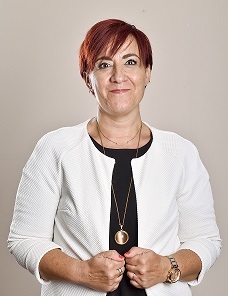All We Have are Moments
Dementia is not a specific disease. It’s an overall term that describes a group of symptoms associated with a decline in memory or other thinking skills. The condition can become so severe that it reduces persons’ ability to be themselves. Unfortunately there is no cure for Dementia. What we can do is help ease the symptoms and concentrate on giving person-centred care to individuals suffering from this disease which in turn would give them a better quality of life.
People are fundamentally emotional beings and although they might forget how to boil water or might forget the name of their child – they will react to the kindness they will react to something like a smile. The “Butterfly Approach” for dementia is based on empathy and activities that are focused on the moment.
It is a feeling of “being with” and not “doing to” the person.
One example that I would like to share is one of the resident rooms’ doors. Following the “Butterfly approach” which promotes individuality, we introduced the “memory box”. In n a regular unit the door would have a number however numbers might not mean much to a person with cognitive decline. A memory box is instead put outside of the client’s room with pictures the client may recognise, be it of them as a child, a picture of a parent, their wedding day, or a logo of their favourite team. These images act as wayfinding and help clients identify their room. Things like these touch people at the core of their emotions and in turn produce a reaction.
Another element used is colour and imagery on the walls. In all the rooms, the common room, corridors, and bathrooms colour is used to either colour-code a particular area, such as the toilets where the colour serves as a guide or acts as a trigger to elicit positive emotions. Doors of client rooms are made to look like front doors painted in the client’s favourite colour giving a sense of home and belonging.
Latest statistics show that there are around five thousand Maltese suffering from Dementia and this number will double by 2030. This means that measures to assist and care for people with Dementia have to receive wider recognition and use. Nurses and carers need to be trained to think differently where dementia care is concerned and trained in giving person-centred care instead of the normal clinical care sometimes lost in bureaucracy, systems and procedures. In this way, dementia wards can portray real homes, heartfelt staff, engaging environments, and people really living good quality lives.
“As we become more emotional and less cognitive, it’s the way you talk to us, not what you say, that we will remember. We know the feelings, but don’t know the plot. Your smile, your laugh and your touch are what we connect with. Empathy heals. Just love us as we are. We’re still here in emotion and spirit, if only you could find us.” (Christine Bryden 2005)



